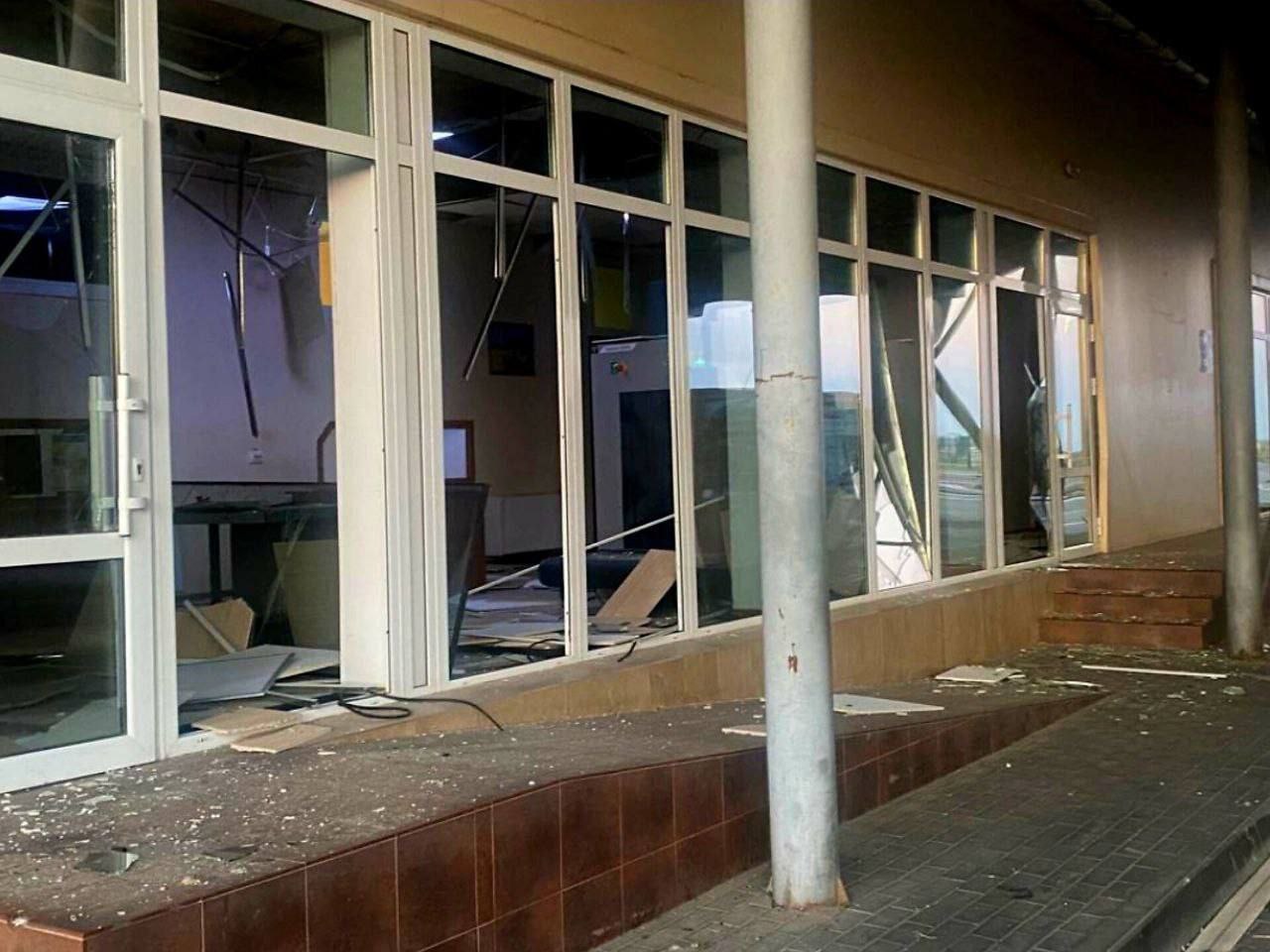As tensions continue to rise in the Black Sea with fears of the Ukraine war spilling over to Romania, the Romanian military has accused Russia of jamming the GPS of its ships in its territorial waters.
Outshining Su-35 & MiG-31, Chinese Media ‘Hails’ Russian Fullback Fighter; Says Pressure On Ukraine Will Increase This Winter
General Daniel Petrescu, the Army Chief of Staff of Romania, said that Russia is “actively and constantly” jamming the GPS communications of ships in Romanian territorial waters, increasing the risk of collisions, Romania Journal reported.
Since Russia exited the grain deal with Ukraine in July this year, it has intensified attacks on Ukrainian ports. Soon after it announced its withdrawal, Moscow’s military warned that it would treat civilian ships transporting grain or food in the Black Sea as military targets.
After Russia backed off from the deal, Ukraine and Romania signed an agreement to collaborate to boost Kyiv’s grain export through Romania since Moscow was opposing the safe passage of vessels, triggering fears of a food crisis.
Although Romania’s military chief gave no plausible explanation about why Russia was jamming its ships in its territorial waters, this could be one of the reasons if the information is authenticated. EurAsian Times could not independently corroborate the claims made by General Daniel Petrescu.
Citing the risk of collision and resultant escalation with Russia, the military chief warned that Romania and NATO must prepare for a protracted conflict with the Russian Federation. The warnings come when tensions run high between Russia and Romania, with concerns of a direct military confrontation.
At the Euroatlantic Resilience Forum, General Petrescu said in a statement: “We feel this confrontation very well, especially in the Eastern Flank of NATO and especially in the region where they come from, the Black Sea. The war of the Russian Federation in Ukraine fundamentally destabilized the Black Sea region and caused feelings of insecurity among the riparian countries, with repercussions on the security environment,” said Daniel Petrescu.
🇷🇴Chief of General Staff of the Romanian Army: Russia is jamming the GPS of ships in Romanian territorial waters to increase the risk of collisions: "we need to prepare for a long-term confrontation” pic.twitter.com/lcHwUNlF4w
— Dacian Draco🇷🇴🇪🇺 (@RealDacianDraco) September 29, 2023
The General emphasized that “the Black Sea has become an area of military operations of Russia” while observing that Russia was firing missiles at military and civilian targets inside Ukraine from the Black Sea. He also noted that the region was seeing an uptick in the frequency of military operations, with maritime accidents and operations restricting the free passage of ships.
The General also informed the press that anti-aircraft alarms had been sounded in Ukrainian cities in the last two days, announcing imminent attacks close to the border with Romania.
Ukraine: NATO once again proves to the Ukrainians in Kiev that it will not get involved in the Conflict in the East
A Ukrainian journalist asked why NATO reacted so passively and mildly to the fact that Russian missiles are falling on the NATO territory of Poland and Romania.… pic.twitter.com/w4oKn9CDmK
— Sprinter (@Sprinter99800) September 29, 2023
These attacks have become the “new normal,” and “the war in Ukraine will continue to generate regional instability and risks to the security of Romania and the region,” General Petrescu noted. He did not, however, provide more information about the jamming of ships in Romanian waters.
“There is a constant risk associated with the increasing probability of incidents at the NATO border, caused by the possibility that certain drones or missiles may miss. Romania’s infrastructure or commercial ships in (Romania’s) territorial waters could be hit by mistake,” stated Daniel Petrescu.
Black Sea’s drifting sea mines were another threat mentioned by the chief of the Romanian military. Earlier, even the White House had warned that Russia had laid sea mines to the approach of Black Sea ports that could likely interfere with Ukrainian grain exports.
The war in Ukraine has unsettled Romania, and this East European country is at risk of becoming a party to the war. However, the risk is far greater since a Russian attack on Romania would be considered an attack on NATO, triggering the collective security clause and making it a direct party to the war.

Romania & NATO Are Bolstering Defenses
On multiple occasions in the last few weeks, wreckages of Russian drones have also been found on Romanian territory. The latest incident came on September 13 when parts of the wreck, possibly from a drone, were found in Romanian Tulcea county, 14 kilometers from the border with Ukraine.
The Romanian Defense Ministry widened the no-fly zone near the Ukrainian border on September 14. Moreover, Romania’s Deputy Chief of Defense Staff General Gheorghiță Vlad said the country’s army was ready to bring down Russian drones if they threatened security.
Earlier this week, ferry service between Romania and Ukraine was suspended after a drone barrage from Russia hit the Black Sea city of Odesa, damaging a warehouse, setting dozens of trucks on fire, and injuring two drivers.
A video taken from the Romanian side of the Danube River showed two orange fireballs erupting close to the port area as rapid bursts of Ukrainian anti-aircraft fire streaked through the night sky. Truck frames in flames were captured on camera. This has triggered a coordinated bolstering of defense in Romania.

Two senior security sources informed the media on September 29 that Romania is increasing the number of military observation stations and patrols in the area, putting its air defenses closer to the Danube villages it has across the river from Ukraine, where Russian drones have been striking grain installations.
In the little hamlet of Plauru in Romania, just a few hundred yards from Ukraine’s Izmail port, the army has constructed two bomb shelters, and locals are alerted through mobile phones when Russian drones are seen flying in their general vicinity.
Last week, as the risk of drones hitting Romania amplified, four F-16 fighter jets from the US Air Force arrived at Fetesti Air Base in Romania on September 22 to support NATO’s air policing actions in the Black Sea region, as announced by NATO. The photographs released by it showed four modern F-16C Block 50 fighters outfitted for long-range air superiority operations.
❝This sends a clear message that we will protect every Ally❞ @NATOpress
Four U.S. Air Force F-16 fighter jets have arrived at Fetesti Air Base in Romania to further enhance NATO air policing in the Black Sea region
— NATO (@NATO) September 23, 2023
Moreover, to modernize its air fleet and bolster its defenses in the long run, the Ministry of Defense in Romania has formally sought parliamentary approval to acquire 32 F-35 military aircraft from the United States at an estimated cost of approximately US$6.5 billion.
Despite the security arrangements made by Romania and NATO, the prevailing sentiment among all NATO allies is that Moscow is not targeting Romania in its attacks. There is no proof that Russian strikes near the Ukraine-Romania border were a premeditated attack on Romania, said NATO Secretary General Jens Stoltenberg.
Nevertheless, he called the strikes “reckless” and “destabilizing.”
- Contact the author at sakshi.tiwari9555 (at) gmail.com
- Follow EurAsian Times on Google News




